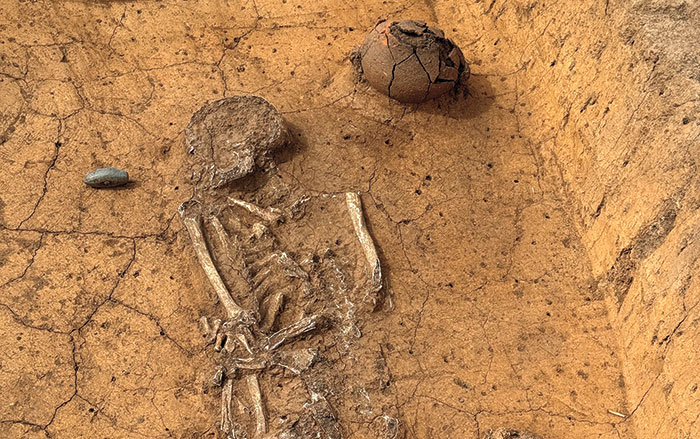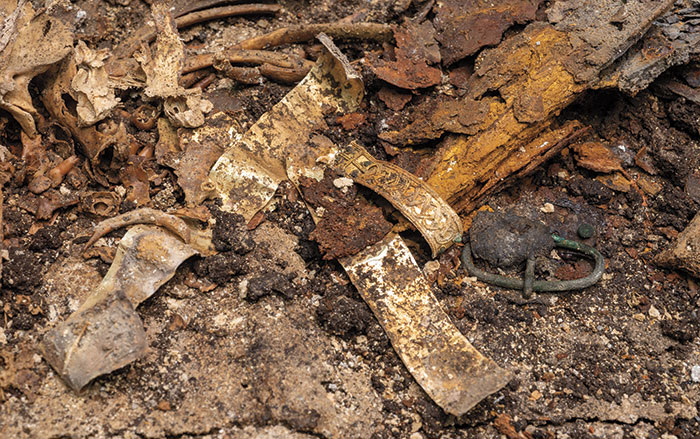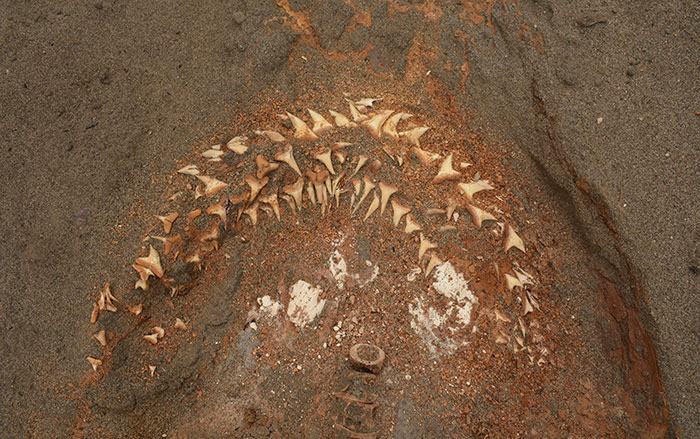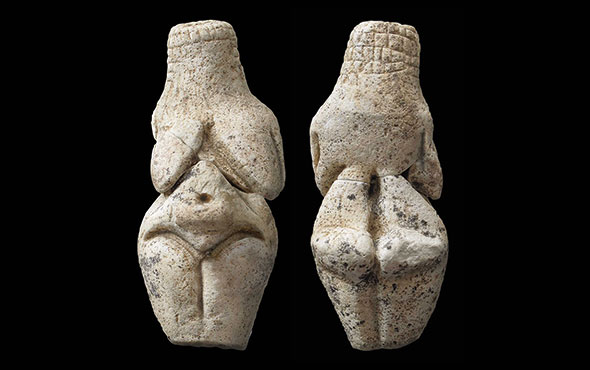
SCHÖNINGEN, GERMANY—Live Science reports that a nearly complete 300,000-year-old elephant skeleton (Palaeoloxodon antiquus) has been unearthed near the site of a large lake in northwestern Germany. Researchers led by Jordi Serangeli of the University of Tübingen have also recovered 30 small flint flakes and two bone tools at the site, which suggest that a human relative such as Homo heidelbergensis scavenged the carcass. The bone tools may have been used to sharpen stone tools, since micro flakes were found embedded in them, explained team archaeologist Bárbara Rodríguez Álvarez. Archaeozoologist Ivo Verheijen said that the animal was a female with worn teeth. Old and sick elephants often remain near water, he added. The remains included straight tusks measuring about seven and one-half feet long, a complete lower jaw, vertebrae and ribs, and the large bones from three of its four legs. Verheijen said the elephant probably stood about ten and one-half feet tall at the shoulder, which is larger than today’s female elephants. Previous research has shown that as many as 20 different kinds of large animals once lived at the lake, making it an attractive hunting spot. Ten wooden spears dated to about 300,000 years ago have also been found nearby. To read more about these spears, go to "Weapons of the Ancient World: Hunting Equipment."











